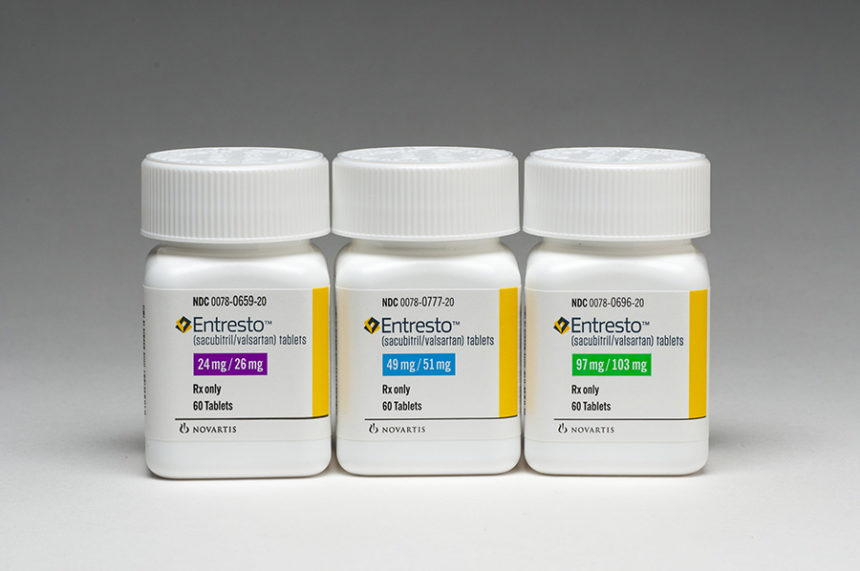The FDA on Tuesday approved Entresto, a new heart-failure drug that is expected to spur interest among healthcare providers seeking new ways to keep patients out of the hospital and lower the risk of financial penalties related to heart-failure hospitalizations.
The drug is approved as a treatment for patients with chronic heart failure (NYHA Class II-IV) and reduced ejection fraction. It can be used in place of an ACE inhibitor or other angiotensin receptor blockers, the current standards of care in the treatment of heart failure.
“This is the first drug in heart failure in over a decade that has an actual reduction in mortality and not just a reduction in hospitalization,” said Dr. Scott Solomon, a cardiologist at Brigham and Women’s Hospital in Boston and one of the trial’s investigators.
Novartis pitted Entresto, which was previously called LCZ696, against standard treatments for heart failure in clinical trials. In the Paradigm-HF trial of 8,442 patients, the drug reduced the risk of cardiovascular death or hospitalization for heart failure by 20% when compared to enalapril, an ACE inhibitor.
Heart failure is a costly, usually fatal condition affecting about 6 million people in the US, half of whom have the reduced ejection fraction form, Novartis said. About one-third of heart-failure patients are classified as NYHA II-IV, the most serious class of the condition. Those patients are unable to be physically active without discomfort.
Still, questions have persisted about the quality of care of heart-failure patients in the US. Hospitals now face financial penalties if heart-failure patients are readmitted to a hospital within 30 days of being discharged from the hospital under new rules established by the Affordable Care Act. (The rules also apply to readmissions for a handful of other conditions such as pneumonia or chronic obstructive pulmonary disease.)
That incentive may be one reason why Novartis is pursuing a risk-sharing pricing model for Entresto. The company said a statement it has discussed linking price to clinical outcomes, including reducing heart-failure hospitalizations, with some payers but the talks are too early to provide additional details.
“Overall, we’re optimistic that most payers will cover Entresto given its significant clinical benefits over current options, although some may take time to do so,” a Novartis spokesperson said.
Analysts predict Entresto will be a blockbuster, with Sanford C. Bernstein’s Tim Anderson telling investors in a research note in May that the product will likely become a mega-brand even if the initial uptake is slow. “It is highly unusual that there are no other major competitors with their own heart failure pipeline drugs in development, giving [Entresto] a long runway,” he wrote.
In a note sent to investors on Tuesday night, Anderson wrote that, despite Novartis’s willingness to explore pay-for-performance pricing with some payers, the drugmaker may not need to give up much on the price, given Entresto’s efficacy when compared to the standard of care.
Novartis executives are also optimistic about the market potential of the drug, which is taken twice a day. In a news release on Tuesday, Novartis President Christi Shaw described the drug as part of “a new era in the treatment of heart failure.”
The wholesale acquisition cost of the drug will be $12.50 a day, about $4,500 a year, Novartis said. That’s higher than some analysts predicted.
Novartis has tapped Greater Than One to handle the global introductory campaign for Entresto. The drugmaker is also working with McCann Managed Markets on a managed markets partnership for the drug.








